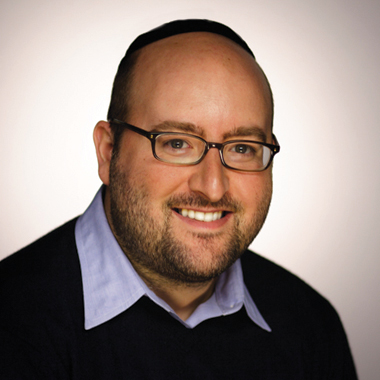In the portion Masei, there is a discussion of all the travel of the Israelites in the desert, and towards the end, something very strange happens. For 40 years, Moses had led the Israelites through the desert, telling them they’re going to enter into the land of Israel. As they’re finally about to cross the river into this land, the two tribes of Reuben and Gad, and half the tribe of Menasha, say they don’t want to go. They tell Moses they are happy with the land on the other side of the Jordan River and want to stay there.
"The purpose of our lives, really, is not to connect to the easy, or revealed, Light of the lower levels, but to the Concealed Light of the higher levels".
When we read this story in the Torah and the commentaries on it, their choice seems to have been a negative one. However, when Moses is about to leave this world, he speaks about that land and praises their decision, saying, “That is the best land, and their choice was the right choice. The land that they chose is where the Light of the Creator is truly revealed.” So, how do we understand these two contradictory realities?
To begin to explain this, the Zohar shares a teaching about the 10 Sefirot, levels, or Emanations, through which Light flows down to our world. The last, or lower, seven are considered the revealed Light, and the higher three are considered the Or HaGanuz, the Concealed Light. And we learn in Kabbalah, the purpose of our lives, really, is not to connect to the easy, or revealed, Light of the lower levels, but to the Concealed Light of the higher levels.
Why? Because when we talk about bringing an end to pain, suffering, and death in our world, it will not be revealed through the lower seven, which represent the times when things are easy, when we’re excited, or when we’re inspired to connect to the Creator, but from the top three, the Concealed Light. If we spend all of our life connecting only when we’re inspired, and sharing only when it feels good, then we don’t make a connection to the Light for which we came into this world.
"If we spend all of our life connecting only when we’re inspired, then we don’t make a connection to the Light"
In the Zohar, it tells us that after Rav Shimon Bar Yochai left this world, the students who remained were in tremendous pain. One in particular was Rav Chiya, who had spent day and night with his teacher before his passing, and was in so much pain he fell to the ground, crying. He needed to find a way to reconnect with his teacher, so he fasted, as fasting often breaks down the barriers of the physical body to enable us to connect to the Light of the Creator. So, Rav Chiya fasted for 40 days with the intention that through it he would see his teacher again. However, after the 40 days, he heard a voice from the Heavens that told him he did not have the merit to see his teacher. So what did he do? Most of us would probably give up, but Rav Chiya did not. He decided to fast for another 40 days, after which his teacher Rav Shimon, and his teacher’s son, Rav Eleazar, came to him in a vision.
Then the whole section here speaks of the teaching and vision Rav Chiya received from them. But there’s one specific part I want to share, because it relates back to the contradiction of how the same thing can be viewed as both negative and positive. When Rav Chiya was having this vision and reconnecting with his teacher, it says that Rav Shimon announced: “Who amongst you has the power to transform darkness into Light, and the ability to taste as sweet what others taste as bitter? If you’re able to achieve that level in this world, then you have the ability to connect to the true Light of the Creator, the Concealed Light, and you have the ability to accomplish what you came to this world to accomplish.”
"You have the ability to accomplish what you came to this world to accomplish.”
We need to ask ourselves, therefore, what kind of person we are; do we have the ability to be in a tremendously negative situation and see it as, and transform it into, positive? Because, as we learn here, Light that is concealed is greater Light, and our purpose for being in this world is not simply to draw and enjoy the already revealed Light, but to transform the darkness within the concealed Light, and then reveal It. We start to do that by shifting how we focus our spiritual work and connection.
When we understand that the purpose of being here is not simply for those enjoyable and inspired moments, but to be able to taste bitterness as sweetness in the darker ones, it gives us a different understanding of why seemingly negative things happen, and, therefore, how to begin to experience them. Knowing that our ego’s plans aren’t always the right ones, and that the situation presented to us is exactly the perfect one we need, we come to the place of being able to transform darkness into Light and tasting bitterness as sweetness, the place which, ultimately, connects us to the Concealed Light and our purpose for coming to this world.
